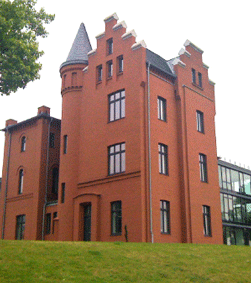Law as Culture
or: In the ‘name’ of culture? (Year 6)
In a concluding phase, the research results of the four thematic pillars and their transversal linkages will be joined together again. The problem statement can be summed up as follows: What are the consequences of insights into the historically and culturally differentiated correlations between law and religion (I), the placement of law and competing normative orders in a multidimensional process of globalization (II), the fanning-out of legal-cultural areas of tension (III), and the many faces of legal representation in literature, film, and architecture (IV) for the question: which importance is to be given to ‘culture’ for the ‘correct law’? Does it constitute its own dimension of validity (Geltungsdimension) empirically and perhaps also normatively? When particularly religiously defined communities demand the applicability of their legal culture within an applicable legal order, does this imply a shift from a long-gone system of justice dominated by classes to one dominated by culture – from a Klassenjustiz to a ‘Kulturjustiz’? This becomes especially clear when taking the example of the presence of Islamic law viz. its different schools of thought in occidental societies, on the one hand, but also in the multi-communitarian India. Within Europe, different legal-cultural modes of transmitting differences in validity (Geltungsdifferenz) emerge. France is characterized by its model of laicism, which segregates the spheres of law and religion in the public space. In Germany, on the other hand, the reality of the state church is recognized. In the Netherlands, the structural verzuiling, expanded by an additional Islamic ‘pillar’, is the subject of a tense debate on the limits of the traditional Dutch tolerance. In Great Britain and Canada, finally, concepts of the transmission of particular cultures of validity and legal-statal unity are undergoing rapid change.
Does a sort of transcultural jurisprudence emerge from this tendency? How does the idea of legal universalism relate to a particular right to rights? What is the role of procedural culture in the opening of a discursive space, in which different cultures’ claims to validity can be articulated? Does culture become a ‘source of law’ of sorts? Or does it not go beyond the symbolic legal décor, the outward appearance of legal practice, the observance of rituals, and the formal, organizational guarantees of law? One may assume that the question as to the relationship “between Facts and Norms” (“Faktizität und Geltung”) cannot be dissociated from its cultural context. Likewise, the suspicion remains, that an indiscriminate and to that extent ‘culturalistic’ acceptance of other legal cultures misses insights into the value-bound character of supposedly purely ‘formal’ legal cultures.

